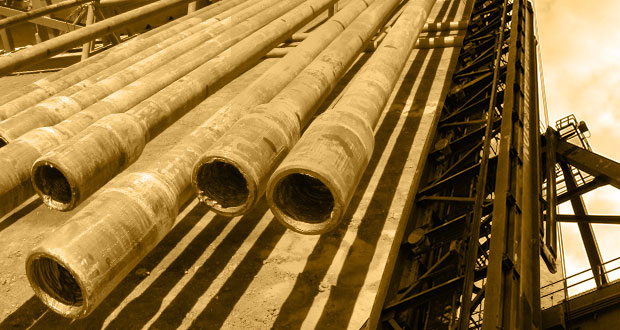Wirelines

Industry criticizes Biden administration decision to pause non-FTA US LNG exports
In January, the Biden administration announced a temporary pause on pending decisions of LNG exports to countries that do not have a free-trade agreement (FTA) with the US. The administration said in a statement that the pause will last until the US Department of Energy (DOE) “can update the underlying analyses for authorizations.”
As of 26 February, the administration has given no timeline as to when that update will be completed.
The pause was met with criticism from various oil and gas industry officials. In a statement, API CEO Mike Sommers called the pause “a win for Russia and a loss for American allies, US jobs and global climate progress.”
“There is no review needed to understand the clear benefits of US LNG for stabilizing global energy markets, supporting thousands of American jobs and reducing emissions around the world by transitioning countries toward cleaner fuels. This is nothing more than a broken promise to US allies, and it’s time for the administration to stop playing politics with global energy security,” he said.
According to API, the US sent more than 800 LNG cargoes to Europe in 2022, a 141% increase from 2021 levels. Also, citing a report from the US Energy Information Administration, US LNG exports reached record highs in 2023 while domestic prices declined by 62% from the 2022 average annual price.
Tim Tarpley, President of the Energy Workforce and Technology Council, said in a statement that the pause will “widely disrupt ongoing projects across the Gulf Coast” and create “a global economic shockwave across energy markets.”
“While our European allies have made significant strides in reducing their reliance on Russian natural gas thanks to American energy producers, Europe faces a considerable supply gap over the long term that should be met by American energy, not hostile nations,” he said. “Moving forward with a pause on US LNG export approvals would only bolster Russian influence and undercut President Biden’s own commitment to supply our allies.”
Click here to read the API’s letter to the US DOE on the LNG export pause.
New bills threaten to end oil and gas activity in Colorado
Leaders of Colorado’s oil and gas industry have criticized a wave of bills from the state’s General Assembly, introduced in February, that would eventually phase out drilling in the state.
Senate Bill 24-159 would require the Colorado Energy and Carbon Management Commission to adopt rules to end the issuing of new oil and gas permits by 1 January 2030. The bill would also reduce the total number of permits for new wells and require new permits issued after 2024 to stop operations by 2032. Senate Bills 24-165 and 24-166 would tighten emissions rules and introduce new air quality standards and penalties. In a news conference held on 22 February, Kait Schwartz, Director of API Colorado, expressed concern with the legislation: “These concepts range from banning any development for any industry that requires an air permit in up to 50% of the state to tracking and limiting how much you can drive your car. Ideas like this are harmful to the Colorado economy, and many of them are bad for the environment.”
Dan Haley, Colorado Oil and Gas Association President, also said the legislation would be a net negative for the state: “We will fight each of these bills, and we intend to explore every available path forward to protect Coloradans from these efforts which, if successful, will raise energy costs on those who can least afford it.”
UK NSTA offers 24 licenses for North Sea E&P in new round
Shell, Equinor, BP and TotalEnergies were among 17 companies offered a total of 24 licenses in the latest oil and gas licensing round from the North Sea Transition Authority (NSTA). The 74 blocks and part-blocks offered are located in the Central North Sea, Northern North Sea and West of Shetland. All remaining blocks, mostly in the Southern North Sea and East Irish Sea, will be offered when environmental evaluations have been finalized by the UK Offshore Petroleum Regulator for Environment and Decommissioning.
The licensing round attracted 115 bids from 76 companies. “We will continue to need oil and gas over the coming decades, so it is common sense to make the most of our own resources,” said Minister for Energy Security and Net Zero Graham Stuart.
OEUK expresses opposition, holds emergency summits over Labour’s tax proposal
On 8 February, the UK Labour Party announced plans for a “proper windfall tax” on oil and gas companies should it win the country’s next general election. The party proposed increasing the existing windfall tax from 75% to 78% and closing loopholes. The party said the proposals would raise £10.8 billion over five years, with that money going to renewable energy investments.
Offshore Energies UK (OEUK) has expressed deep concern with the proposal. In a statement, the organization said that it could lead to as many as 42,000 jobs lost in the sector and that such losses could be felt even before the calling of the next general election.
“The confidence of energy producers to invest in the UK has come under consistent challenge in recent years, with industry cautioning that proposals to increase the tax further and remove vital allowances would deliver a hammer blow to homegrown energy,” the organization said in a statement.
In February, OEUK held emergency summits with industry representatives to discuss the proposal and gather evidence to present to the Labour Party.



